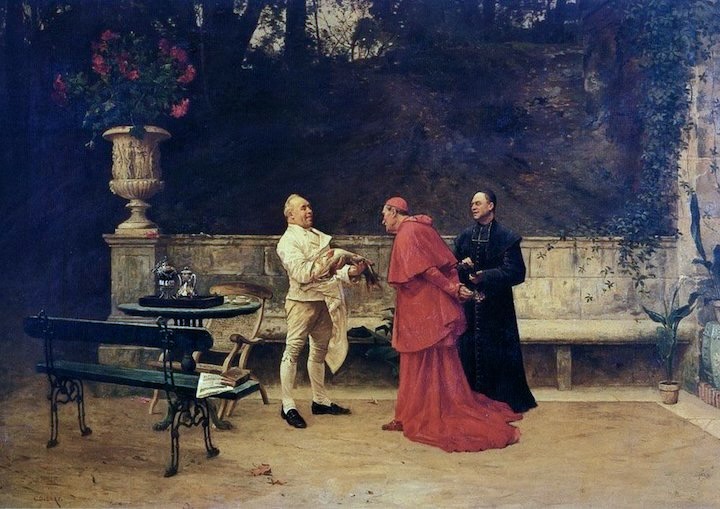I used to make myself tedious, when still a child, by giving this advice quite freely to my schoolmates: “Grow up!,” I would say.
This was when dealing with another young person who was being characteristically young. Juvenile brutishness was my preferred target.
For some reason it did not occur to me to give this advice to myself, when I was behaving as a stroppy wee tyrant. Or if it did, it passed right over my head.
To my contemporaries, or even my slight elders, this advice wasn’t plausible, when I was ten years old. It didn’t really become more plausible when I was twenty, or thirty – though I continued generous in giving it.
Well, now that I am seventy, I will try it again.
My model for adulthood, some sixty years ago, was Miss Fleming, the principal in the Bangkok Patana School I was then attending. We had become familiar, owing to my habit of ignoring published rules.
“We do not break rules in this school, explained Miss Fleming, after I had somehow ignored one again.
“We bend them, elegantly.”
This was her way of granting permission for some worthy extra-curricular activity, that was impinging on school time. I was saved because she preferred my actual education to a similitude. As school administrators go, she was one of a kind.
To be an adult, I learned, one had to think things through. One did not do even the most sensible things, purely on impulse. One considered the consequences, including those which might fall on others.
A lot has happened in the intervening lifetime, but this method of adulthood has not changed. The only thing that appears to have changed is, fewer and fewer adults.
This is a problem throughout Western society, that afflicts most acutely our Catholic life.
Much of what I lament about the “new world” since Vatican II has little to do with “Church policy” directly, but only with her functionaries. The dogmas haven’t changed, for instance; they just happen to be taken less seriously, and those functionaries seem less and less inclined to subscribe.
Instead, we have the childish eyeball-roll. This is cynical enough, but it is worse when it feigns earnestness, and plays fast and loose with Church teaching. It becomes callow and frivolous.
Rather than assimilate, with growing wisdom, the experience of the Church, over her many centuries, the very young (of all ages) try to replace this growth with their own experience. This is very much the case when bishops, even priests, decide to promote women to positions they cannot hold, or bless behavior that is objectively sinful.

For one would have to be an adult to realize that what has been impossible for 2000 years (and more), cannot suddenly become possible when the pope tinkles a bell, or some synod holds a vote on it.
An adult might decide, in face of this fact, that he cannot be a Catholic. History provides us with examples. He may carry his doubts discreetly, and maturely, rather than provocatively. He might try to explain himself, but it is himself that he is explaining.
The Church believes differently, and there will be, perhaps, a sincere parting of the ways. For the individual would do irresponsible damage, if he stayed within the fold, when he is tempted to subvert it. An adult would of course not be tempted in this way. He would instead grieve that he had lost the faith of his fathers.
I am not naming names in accusation, incidentally; but the reader of this website may fill in the blanks I am leaving.
This is not to say that an adult Catholic exhibits a faith that is merely reasonable and dull. There is an incredibly broad universe of religious understanding, compatible with Church teaching, just as there is a broad and widening universe in the realm of scientific understanding.
But just as in the sciences, there is a way out. A scientific hypothesis or field observation may be demonstrably untrue, so that a “scientist,” with any honor, must abandon it.
Similarly for the Catholic Christian. As long as a belief is possible to hold, or is, as it were, theologically viable, it may be welcomed. But the moment it begins to contradict and chew away at what is established as true, the honorable Christian walks away.
To do otherwise is to play silly-goats, with Christ. It is to make a game of faith, in which humility is rejected. It is to act as a child while pretending to be an intelligent, adult figure.
I, together with most remaining Catholics, I think, have tired of this game. When we attend the Mass, we do so as Christians, not as freethinkers or members of some exclusive cult. It is wearying to listen, for instance, to homilies which frankly contradict Christian doctrine, or carefully avoid defending it.
For arrogance is a terrible crime, when uttered from a pulpit, and so is cowardice. To be silent when St. Michael and the Angels have been summoning our attention to an outrage against Christ, is arrogance in reverse. The priest’s task is to speak with the angels; to make himself heard in the world.
The consequences of not doing so are, for him we may be sure, worse than any risk he could be taking with unfashionable views.
Perhaps the greatest criticism that can be made is that he (or any lay person like him) is acting like a scared child. This is a state that he should have grown out of. He is a man, and thus must act like a man.
And women, too, can act as adults. They are also called by Our Lord, as men are; and they are not entitled to cringe and be pathetic.
For if they are Catholic adults, they must know that their own physical safety, their own worldly life, is not the most crucial thing to secure.
__________















